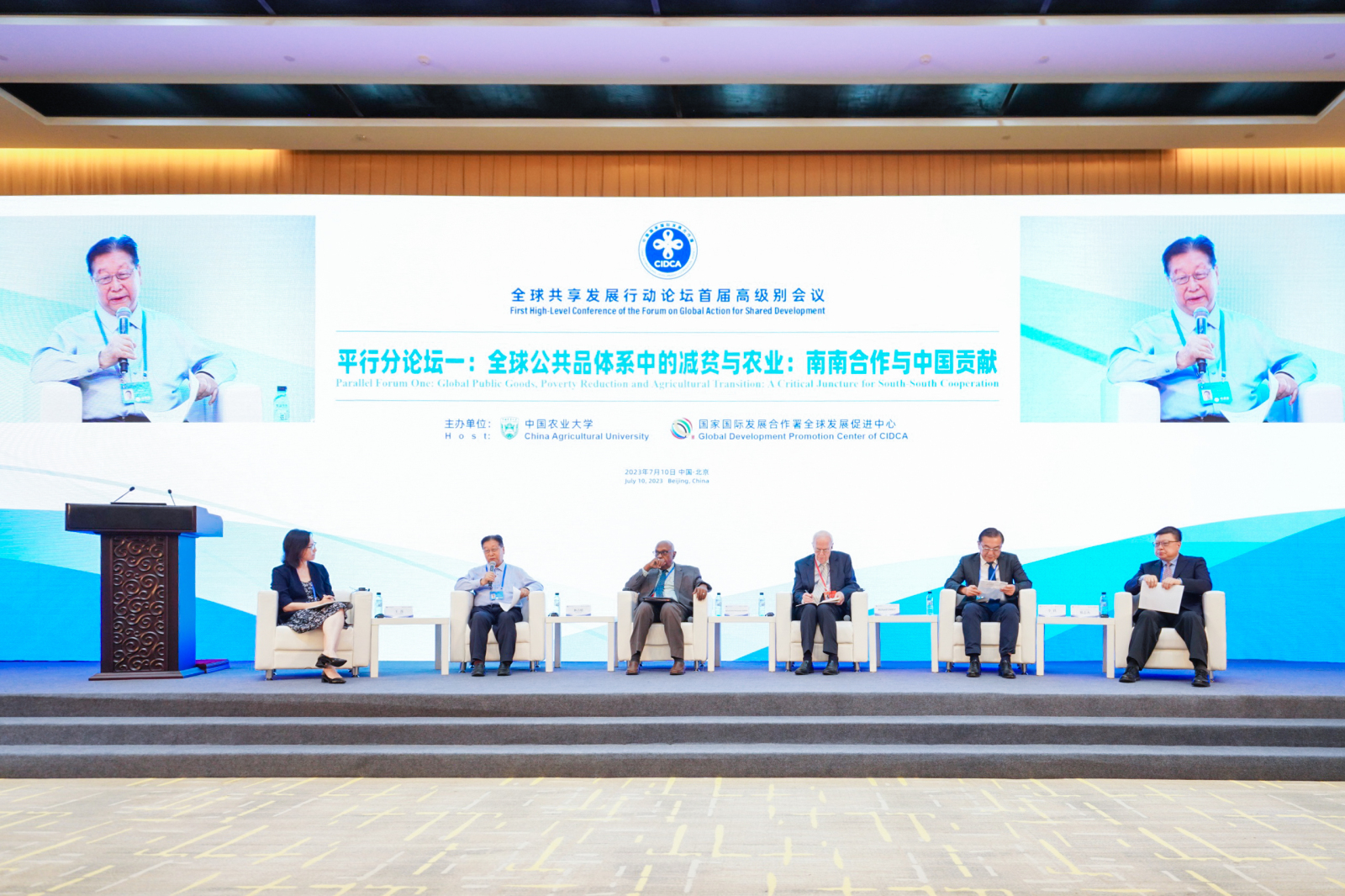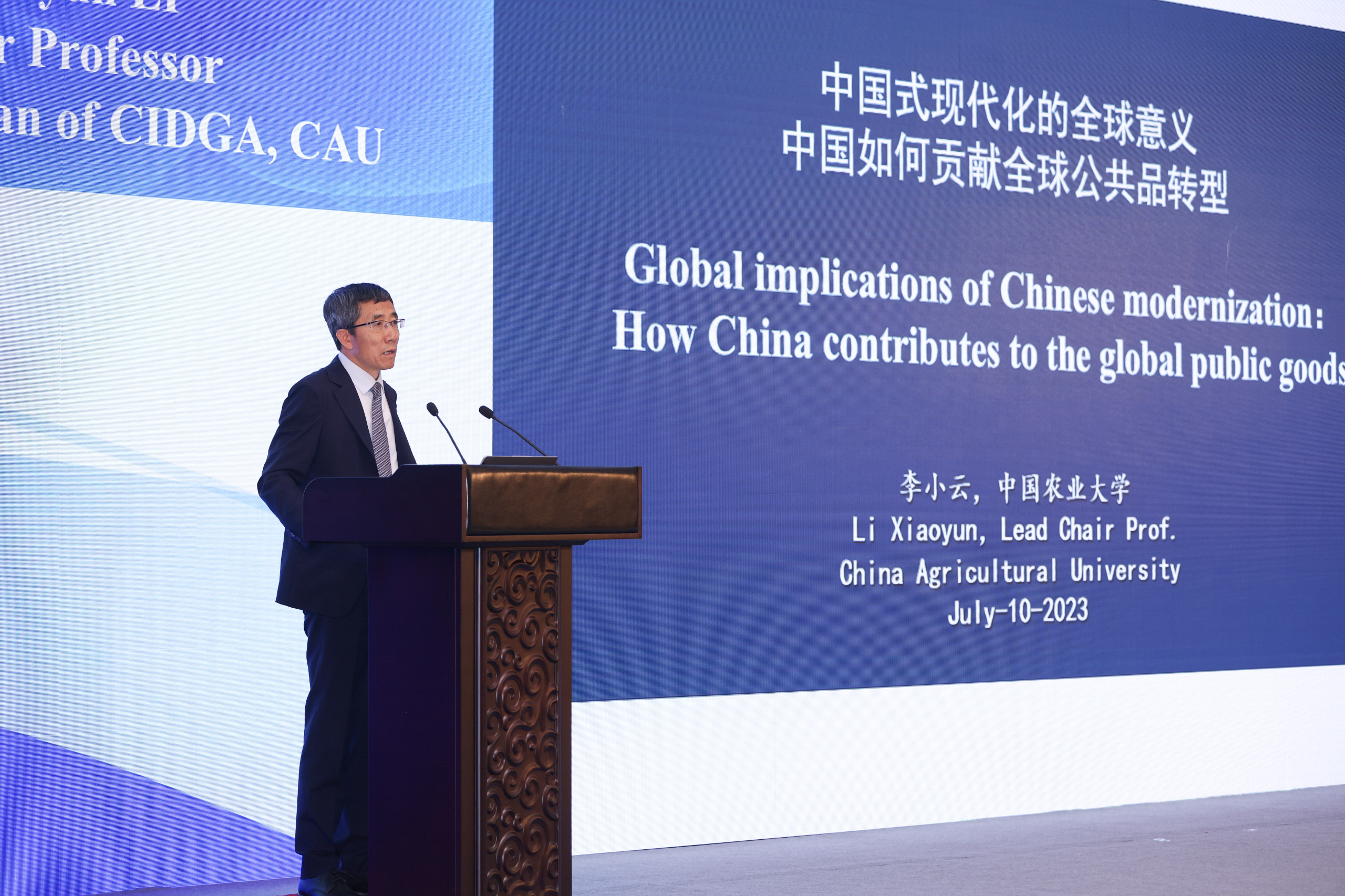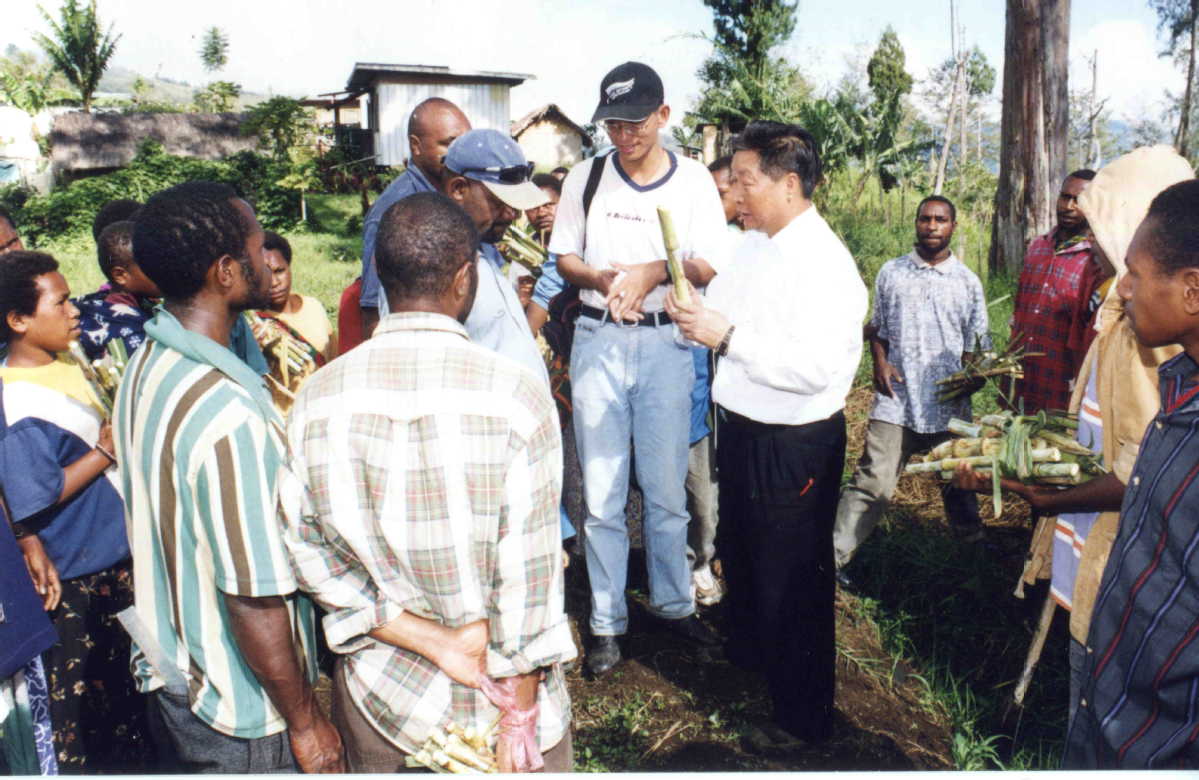China's experience in poverty eradication and agricultural development has provided many case studies and opportunities for poverty reduction worldwide.
Themed "Global Public Goods, Poverty Reduction and Agricultural Transition, a Critical Juncture for South-South Cooperation," a parallel forum of the first high-level conference of the Forum on Global Action for Shared Development opened in Beijing on Monday.

Themed "Global Public Goods, Poverty Reduction and Agricultural Transition, a Critical Juncture for South-South Cooperation," a parallel forum of the first high-level conference of the Forum on Global Action for Shared Development opened in Beijing on Monday.
Themed "Global Public Goods, Poverty Reduction and Agricultural Transition, a Critical Juncture for South-South Cooperation," a parallel forum of the first high-level conference of the Forum on Global Action for Shared Development opened in Beijing on Monday.
"Agricultural development and poverty reduction are the main areas that the Chinese path to modernization has contributed to global development," said Li Xiaoyun, a well-known expert on agricultural development and poverty reduction, who serves as the chair professor and honorary dean of the College of International Development and Global Agriculture at China Agricultural University.

Professor Li Xiaoyun shares China's poverty reduction experience at a parallel forum of the first high-level conference of the Forum on Global Action for Shared Development in Beijing, July 10, 2023. /CGTN
Professor Li Xiaoyun shares China's poverty reduction experience at a parallel forum of the first high-level conference of the Forum on Global Action for Shared Development in Beijing, July 10, 2023. /CGTN
Poverty eradication and ensuring food security are the top priorities of the UN Sustainable Development Agenda. Li emphasized that by feeding nearly 20 percent of the world's population on merely 7 percent of the world's cultivated land, the modernization of China's agriculture sector and remarkable poverty eradication has proved that self-reliant agricultural development based on the zero-hunger model, economic and income growth based on the pro-poor growth model and an inequality-reduction driven redistribution model are feasible.
Also, by finding solutions for food security and better nutrition through technology, the Juncao technology reflects the success of China's poverty alleviation and is an important contribution to sustainable development.
Juncao, which literally means "mushroom" and "grass," refers to the technology using grass to grow mushrooms. Without cutting down trees and damaging the environment, Juncao can grow edible mushrooms as livestock feed or as a green barrier to stop desertification. It is hailed by many as China's "magic grass." In 2017, Juncao technology was listed as a key project of the China-UN Peace and Development Trust Fund.

Lin Zhanxi instructs local farmers how to cultivate Juncao grass in Eastern Highlands in Papua New Guinea. /China Daily
Lin Zhanxi instructs local farmers how to cultivate Juncao grass in Eastern Highlands in Papua New Guinea. /China Daily
China's Juncao technology has opened up a new path for developing countries, from the South Pacific to Africa and Latin America, to increase employment, eradicate poverty and achieve sustainable development, said Lin Zhanxi, the "father of Juncao technology" and chief scientist of the National Engineering Research Center for Juncao Technology at Fujian Agriculture and Forestry University, adding that fighting poverty with assistance from Juncao technology in Papua New Guinea's Eastern Highlands has become a model for the UN 2023 Sustainable Development Agenda.
The parallel forum was organized by the China Agricultural University and Global Development Promotion Center of China International Development Cooperation Agency.